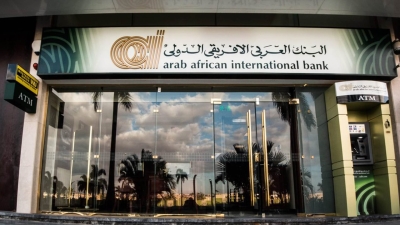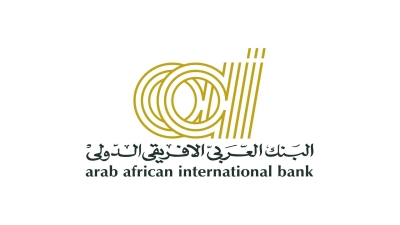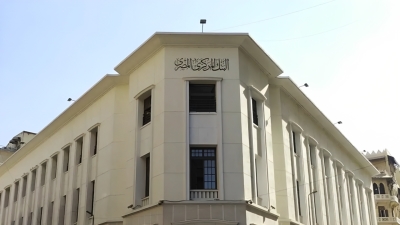Hassan Abdalla concludes his second year in leading CBE, achieving multiple goals amidst crises
First Bank

Hassan Abdalla concludes his second year in the leadership of CBE, Multiple goals amidst crises Foreign reserves continue to rise for the 23rd month in a row. The highest level ever recorded by the end of July 2024
Inflation is declining for the fifth consecutive month. FDI flows to Egypt record biggest increase in fiscal year 2022/2023
In the midst of an economic crisis that was taking place in Egypt with the shortage of hard currency internally, the decline of foreign reserves, the spread of the black market of currency and the rise of benefits globally, Hassan Abdalla assumed the Acting Governor of the Central Bank of Egypt in August 2022, succeeding Tarek Amer.
Abdalla has demonstrated his ingenuity in managing many of these difficult files thanks to his bold decisions, which included eliminating the black market for currency, overcoming the foreign exchange crisis, falling inflation rates and increasing Egypt's foreign reserves for 23 months in a row.
This was revealed by a monitoring conducted by First Bank of Hassan Abdalla's most outstanding achievements since he assumed the leadership of the Central Bank of Egypt, in keeping with his completion of two full years.
Foreign cash reserves recorded unprecedented historical figures to reach its highest level of $46.489 bn by the end of July, compared to $33.142 bn by the end of August 2022, recording a growth rate of 40.27% and an increase of $13.347 bn.
Foreign reserves continue to rise for the 23rd consecutive month under the Central Bank Governor's direction to promote dollar resources, reduce imports, increase exports and attract foreign investment, while adopting a package of new economic reforms to support growth.
The increase in cash reserves helped achieve an overall balance of payments surplus of about $4.1 bn, which was positively reflected in capital and financial transactions to record a net inflow of about $20 bn during the July/March period of fiscal year 2023/2024.
To increase cash reserves as well, remittances from Egyptians working abroad rose during June 2024 - for the fourth consecutive month - by 65.9% to register about $2.6 bn. (Compared to about $1.5 bn in June 2023), remittances increased more than double because of pre-reform measures on 6 March 2024, declining to about $1.3 bn on February 2024.
It should be noted that the current reserve balances are capable of securing Egypt's imports of goods for up to 7.9 months. This is in addition to the dramatic increase in foreign exchange flows to the domestic market, which saw an increase of almost 200%, including an increase of more than 100% in Egyptian remittances abroad compared to the pre-unifying of the exchange rate.
Egypt's external debt fell to $153.86 bn at the end of May 2024, compared to $168.03 bn at the end of December 2023, with a decrease of $14.17 bn by an estimated 8.43%. This decline during the five-month period is the largest comparison in the history of external debt ever seen, according to a senior source from the Central Bank of Egypt.
The strong rise in currency flows contributed to the elimination of CBE's foreign assets deficit to record a surplus of $10.5 bn in July 2024, compared to the $11.4 bn deficit in January 2024.
Inflation declined for the fifth consecutive month, contributing to stabilizing prices locally, reducing pressure on Egyptian households and boosting confidence in the local currency, business environment and investment of the Egyptian economy. The core consumer price figure fell year-on-year to 25.673% by the end of July 2024, compared to 35.710% by the end of February.
The core consumer price figure fell year-on-year to 24.381% by the end of July 2024, compared to 35.120% by the end of February of the same year, according to Central Bank of Egypt data.
Egypt also saw an increase in FDI inflows, with fiscal year 2022/2023 the largest increase in FDI flows to Egypt, with FDI reaching $10.04 bn, compared to $8.9 bn in fiscal year 2021/2022.
In addition, investment requests for available opportunities reached 42 during the period from January to March 2023 compared to the target of 40 applications, and significant growth in net FDI flows was recorded by 451.3% in the second quarter of fiscal 2023/2022.
One of Hassan Abdalla's most notable achievements was also the elimination of the parallel (black) currency market, due to the introduction of a flexible pound exchange rate system for foreign currencies by the Central Bank of Egypt on March 6.
On the banking sector indicators, it saw a strong improvement under Hassan Abdalla, where the portfolio of banks' assets (other than CBE) jumped by 74.93%, reaching EGP 18.387 tn by the end of April 2024, compared to EGP 10.5 tn by the end of August 2022.
Customer deposits portfolio climbed to EGP 11.7 tn by the end of April 2024, compared to EGP 7.647 tn by the end of August 2022, with growth of 52.68%.
Banks’ total customer loans jumped by 91.44% to EGP 6.831 tn by the end of April 2024, compared to EGP 3.568 tn by the end of August 2022.
The capital of Banks rose by 62.37%, reaching EGP 451.253 bn by the end of April 2024, compared to EGP 277.912 bn by the end of August 2022.
With global and local economic challenges, Hassan Abdalla has proven his ingenuity as the leader of economic reform in Egypt through his wise management and bold decisions, managed to transform the Egyptian economy into a more stable and growing path. It is worth noting that as these achievements continue, Egypt appears to be moving at a steady pace towards a brighter and more sustainable economic future, thus strengthening its place on the ground.








